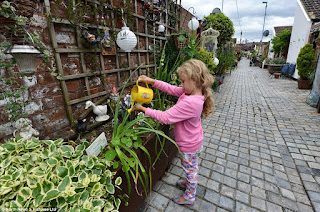So tonight, Friends of the Libraries group has been formed. It arrived with a whimper rather than a fanfare. Fortunately the councillors there were all committed 'preserve the library' proponents, or they would immediately have perceived a weakness. The 40 or so attenders formed predominantly a sea of grey.
My contribution was short and to the point. There will be time enough in due course to mico-manage uses for the building, a feat that in any event cannot be accomplished - or even effectively started within the consultation time-scales set by the council.
What is needed now is a huge campaign of protest from a dynamically organised Darlington population. It must involve everyone- from the smallest child in the town's smallest school, to the largest director in the town's key businesses. It needs a day of protest in the town centre, with dozens of petitioners wearing gelco bibs, schools and colleges to close for the morning so that children and students can picket the town hall. It needs the support of every parent who values a free public library service in Crown Street. It needs a band!
As things stand, a public consultation will be deemed to have proceeded, and our elected councillors will take their party whip to vote for the cut rather than the conscience.
The quiet voices of the town's residents and readers will be drowned in a sea of red tape, as Darlington's Chief Executive discovers ways to defeat the library covenants and buy off opponents with promises.
As an experienced mediator, I recognise that there will come a time to sit around a table - if such is ever offered. But now is not that time. The Friends group, rather like their steering committee, presently lack the political experience and credibility to make themselves heard. Only with a clear public mandate of 'No' to closure, will objectors get beyond the strategic stage.
Whilst these steps are urgent, and in my view essential - the steering committee should continue to make progress with local business leaders and those with clear political ambitions, putting together the rescue package that uses every commercial opportunity and resource that the historic building may offer. This will not be easy. It will require skilled management, persistence and determination.
But first, the Friends of the Libraries group needs to be empowered - not simply by conviction, but by public mandate. And that means - YOU.
Without your support - in practical, selfless and time-giving terms, the libraries will gradually close, their staff will receive their redundancy notices (perhaps delivered by taxi) and our historic buildings will become forever figures in ledgers.

















































